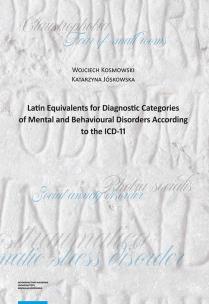- Regulamin
- Koszty dostawy
- Kontakt
- Dziś w ofercie 234 192 produkty
KSIĄŻKI
- Albumy
- Beletrystyka
- Biografie
- Dla dzieci i młodzieży
- Edukacja
- Ekonomia i biznes
- Ezoteryka
- Historia
- Informatyka
- Kalendarze
- Komiksy
- Kryminał i sensacja
- Kultura i sztuka
- Literatura faktu
- Literatura kobieca
- Literatura piękna
- Medycyna
- Nauka języków obcych
- Nauki humanistyczne
- Nauki przyrodnicze
- Nauki ścisłe
- Podręczniki
- Poradniki
- Prawo i administracja
- Przewodniki i podróże
- Psychologia
- Religia
- Sport
- Technika
- Zdrowie i uroda
ZABAWKI
- Artykuły dla niemowląt
- Bączki
- Bujaki i skoczki
- Ciągnij / pchaj
- Dla niemowlaka
- Grzechotki i gryzaki
- Karuzele i pozytywki
- Maty i centra zabaw
- Projektory i lampki
- Sortery i piramidki
- Zabawki
- Edukacyjne i kreatywne
- Figurki
- Klocki
- Lalki
- Pojazdy
- Pluszaki i maskotki
- Sport i rekreacja
- Zabawa w dom
- Zabawki drewniane
- Puzzle
- Do 200 elementów
- 201-500 elementów
- 501-1000 elementów
- Ponad 1000 elementów
- Puzzle 3D
ART. PAP
- Artykuły biurowe
- Artykuły piśmiennicze
- Bloczki i kartki samoprzylepne
- Dziurkacze
- Kalkulatory
- Nożyczki i nożyki
- Skoroszyty
- Teczki
- Wizytowniki
- Zszywacze
- Artykuły szkolne
- Akcesoria szkolne
- Modelowanie
- Notatniki i zeszyty
- Piórniki
- Plecaki i torby
- Pojemniki na śniadanie
- Pomoce naukowe
- Przybory matematyczne
- Przybory rysunkowe
- Upominki i gadżety
- Akcesoria do książek
- Artykuły balowe
- Breloki i zawieszki
- Drobiazgi, różności
- Kubki
- Oferta Świąteczna
- Papeteria, kartki i naklejki
- Skarpetki Many Mornings
- Upominki
GRY
MULTIMEDIA
- Audiobooki
- Beletrystyka
- Biografie i wspomnienia
- Dla dzieci i młodzieży
- Fantastyka
- Filozofia i religia
- Historia
- Literatura faktu i reportaż
- Poradniki
- Sensacja i kryminał
- Filmy DVD/BD
- Animowane
- Biograficzne
- Fantasy
- Horrory
- Komedie
- Romanse
- Science Fiction
- Sensacyjne / kino akcji
- Thrillery
- Muzyka CD
- Alternatywna
- Blues
- Dla dzieci
- Jazz
- Klasyczna
- Piosenka aktorska i poetycka
- Pop
- Rock
- Świąteczna i kolędy
- Akcesoria GSM
- Głośniki
- Kable i adaptery
- Klawiatury
- Myszy
- Słuchawki
PROMOCJE
ZDROWIE
LEGO

Latin Equivalents for Diagnostic Categories of Mental and Behavioural Disorders According to the ICD
Wydawca:
Wydawnictwo Naukowe UMK
ISBN:
9788323151722
EAN:
9788323151722
oprawa:
Miękka
język:
angielski
liczba stron:
108
rok wydania:
2023
(0) Sprawdź recenzje
Opis produktu
Zasady bezpieczeństwa
Latin has been widely used for around 2000 years as a tool for preparing medical professionals’ nomenclature. In 2018, the WHO released the 11th revision of the International Classification of Diseases (ICD). The basic version of ICD-11 is in English, while other language versions are currently being prepared. The authors conducted an analysis of the English-Latin translation process and proposed a bilingual corpus of diagnoses containing Latin and English equivalents for mental and behavioural disorders as defined by ICD-11. This book also describes the clinical aspects of formulating diagnoses in medicine, with reference to other sciences. It discusses semantic and logical issues, as well as information theory. Finally, it references the pragmatics of medical language. Selected concepts of translation and their strategies are also presented. The authors provide detailed information about the procedures, strategies, and methods used in their work. The translation process involves a literal approach to individual words or phrases while considering the tradition of Latin usage in medicine and utilizing knowledge of Latin grammar and pragmatics. The proposed model for creating a glossary of disease names and symptoms of mental disorders according to ICD-11 can also be applied in preparing other language versions. The results of the research work are organized into 28 tables that group disorders according to the divisions outlined in ICD-11. Furthermore, six auxiliary tables have been developed to illustrate the general criteria for creating names. In total, the work includes 1,626 Latin names for various mental disorders. The authors have created a glossary, available as a separate Excel file, which was developed in accordance with the model prepared by WHO.
CENA:
27,13
zł
Cena detaliczna:
32,00 zł
15%
rabatu
Najniższa cena z ostatnich 30 dni: 27,20 zł
Produkt niedostępny
Uwaga!!!
Ten produkt jest zapowiedzią. Realizacja Twojego zamówienia ulegnie przez to wydłużeniu do czasu premiery tej pozycji. Czy chcesz dodać ten produkt do koszyka?


Wybierz wariant produktu
